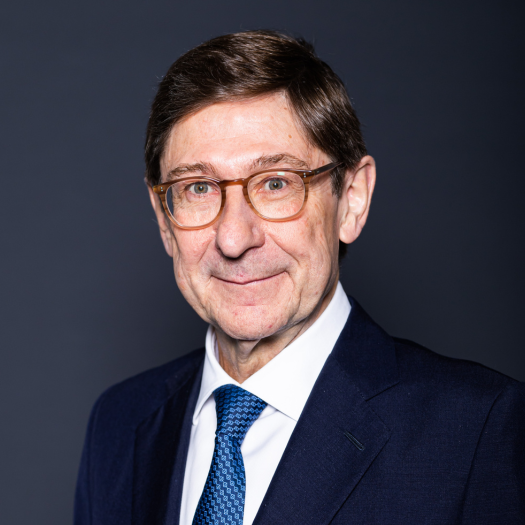Relevance of artificial intelligence governance for responsible use within organizations.
By José Ignacio Goirigolzarri
Chairman of Caixabank

The implementation of AI in organizations is going to have a huge impact. To address the significant challenges posed by its use, it is essential to have good internal governance of all AI initiatives and an ethical framework for its implementation. At CaixaBank we are well aware of these challenges, and we have therefore defined a framework that guarantees good governance of AI and support initiatives that help ensure that its use is governed by the best ethical, responsible and sustainable standards.
History has repeatedly shown us that technological advances, when extended and made available to the population, are a source of productivity improvement, supporting growth and favoring wealth creation.
But, by the same token, their design and implementation also generate risks, which must be appropriately managed from the outset.
And if this has always been true, it is even more so with a technology such as Artificial Intelligence, both because of the speed of its development and diffusion, as well as its tremendous potential.
The implementation of AI in an organization will have a significant impact on relevant aspects of business management such as the improvement of processes, products and services offered, as well as the improvement of customer experience.
And precisely because of this enormous impact, it is so important to take into account ethical and responsibility aspects in the development and use of AI, to ensure that people's rights and freedoms are respected and that applicable regulations and standards are complied with.
This includes consideration of social risks, such as misinformation, privacy and protection of personal data, non-discrimination, technological dependence and special attention to sustainability and the environment to avoid unnecessary consumption.
To address these challenges, it is essential to have good internal governance of all AI initiatives and an ethical framework for their implementation regardless of their level of risk.
At CaixaBank we have defined a framework that ensures good AI governance and uses the current Privacy circuits in which any data processing already includes an ethical assessment, taking into account CaixaBank's own principles of responsibility, existing regulations and future regulations that are currently being developed at European level. In addition, we are launching internal staff training programs, which provide the necessary knowledge to create an effective responsible AI governance program.
The challenge is not minor, but only if companies, institutions and individuals become aware of the risks that the implementation of AI entails, will we all be able to ensure that its use is governed by the best ethical, responsible and sustainable standards, and thus, that AI ends up contributing to the improvement of people's quality of life, which should always be the ultimate goal of the use of technology.

José Ignacio Goirigolzarri, President of Caixabank
Born in Bilbao in 1954. Married with two children. Degree in Economics and Business Administration from the Commercial University of Deusto. Finance and Strategic Planning from the University of Leeds (U.K.). Professor at the Commercial University of Deusto, in the Strategic Planning Area (1977-1979).
He joined the Banco de Bilbao and in 1994 became a member of the BBV Management Committee, where he was responsible for Commercial Banking in Spain and Latin American operations. In 2001 he was appointed Chief Executive Officer of the BBVA Group, a position he held until October 2009.
In May 2012, he was elected Chairman of Bankia and its parent company, BFA, serving as such until March 2021, when Bankia merged with CaixaBank. At that time, he was appointed Executive Chairman of CaixaBank.
He has been Director and Vice Chairman of Telefónica and Repsol, as well as Chairman of the Spain-USA Foundation, Director of BBVA Bancomer in Mexico and Director of Citic Bank in China.
He is currently Chairman of CaixaBank, Vice-Chairman of CECA, Vice-Chairman of the FAD Foundation, Chairman of Deusto Business School and Chairman of CaixaBank Dualiza.

